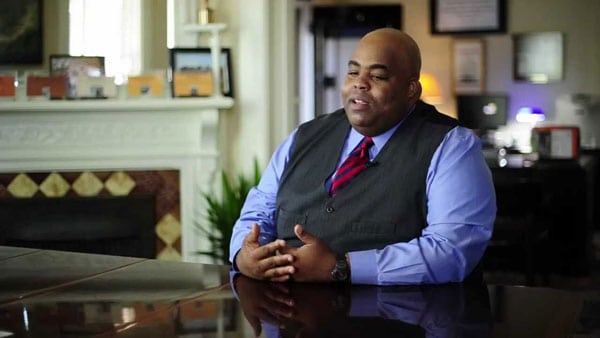
June 21, 2018; Waco Tribune-Herald
It’s now a familiar story: low-performing schools, nearly 100 percent poor kids of color, are given a stark set of choices by the state education agency, first through No Child Left Behind and now through the Every Child Succeeds Act (ESSA)—close, reconstitute with new staff, or cede control to non-district charter operators. The affected communities are often deeply opposed to the loss of their school but see little choice other than an external charter operator. Do these options for failing schools produce better results? So far, there are no clear wins. What the research does say is that no strategy, whether implemented in cities as diverse as Baltimore, Denver, Oakland, New York, or New Orleans, provides any guarantee of success, and that each response faces the common trials of political conflict, administrative inertia, lack of qualified teachers and principals, finite funding streams and, of course, the complex web of challenges that kids living in poverty bring with them to school each day.
A new strategy, however, will soon be tested in a small district in central Texas. Waco Independent School District (ISD) is partnering with a community-wide nonprofit that is not a charter operator but a “backbone organization” for a “broad community initiative to address poverty-related issues and improve quality of life in our community.” The nonprofit, Prosper Waco, resembles many of the collective impact initiatives sprouting up in communities across the country that focus on large-scale social change, determined partnering, and common metrics. But it is the only collective impact initiative that has embraced taking over five troubled schools with the full support of the local school district.
The city of Waco, population 136,436, is situated 100 miles from Austin and Dallas and is perhaps best known for its proximity to George W. Bush’s “western White House” and as the site of the 1993 Waco “siege,” a 51-day standoff between federal agents and members of a millennial Christian sect called the Branch Davidians in which 75 people died. There, one finds Baylor University, a nationally ranked Christian university with 16,000 students. But it is also home to a school district where 90 percent of its 15,000 students qualify for free or reduced lunch and 91 percent are kids of color.
In 2015, the Texas legislature passed a law that requires the state’s education commissioner to close any school that has been rated “improvement required” for five or more consecutive years or replace the school district’s elected board of trustees. Six of Waco’s schools got the IR rating for the 2016–17 school year. What to do?
Waco has at least two assets that many other communities in similar situations lack. First, it has Prosper Waco, the four-year-old collective impact structure with at least 80 partners and nearly 30 projects, sharply focused on a collaborative response to the city’s educational, health, and poverty challenges. Its “aligned programs” include a nurse-family partnership, early childhood initiatives, home visiting supports, a Freedom School sponsored by Baylor focused on intensive literacy interventions, and summer enrichments.
Second, the Waco ISD has a new school leader, A. Marcus Nelson, the 2014 (Texas) State Superintendent of the Year, a keynoter at the 2017 National Educators and Administrative Leadership Institute, and the architect of an eight-year effort in Laredo to move from nine low-performing schools to zero.
Sign up for our free newsletters
Subscribe to NPQ's newsletters to have our top stories delivered directly to your inbox.
By signing up, you agree to our privacy policy and terms of use, and to receive messages from NPQ and our partners.
When asked by Waco Magazine how he succeeded in Laredo, Nelson says, “The first thing you have to do is you have to change the culture.”
So, I go myself to campuses, and I talk to kids, and I look at their journals, and I read what they say, and I have conversations. I sit in what’s called teacher PLCs (professional learning communities), and I listen to them…I go to work out over at the YMCA at the east side, and I’m out there on the basketball court, working with kids like I want my teachers to do.
[The kids] want to wake up in the morning and come to school because they know Dr. Nelson’s looking for them. They know, you’re not there by eight, Nelson might show up on a home visit. Yeah. The principal might even show up. These are the type of culture shifts [I’m talking about].
Nelson’s plan to address the threatened school closings was to partner with Prosper Waco, now possible because of a 2017 state law, SB 1882, that enables a Texas school district to contract with charter school operators, nonprofits, or higher ed institutions. As incentives, the state then offers a two-year reprieve from accountability sanctions as well $906 per pupil per year ($3.5 million) in additional funding. Waco is the first school district to partner with a community nonprofit, as opposed to a charter operator, for this turnaround partnership.
Last month, Prosper Waco assumed full autonomy over the five underperforming schools, and in June created a new organization, Transformation Waco, to take charge. The new seven-person board, forbidden by state law from having any members with ties to the ISD, includes a former mayor (the only “Anglo”), a Baylor professor, an attorney, a family physician, a retired Waco teacher, a PTA president, and a community health worker. The new organization has one employee on its payroll, the former district assistant superintendent, and will contract with the ISD for all other personnel.
Compare this arrangement to North Carolina’s decision to create a statewide “Innovative School District” to take over failing schools and contract with a politically connected charter operator to run them. Says Dr. Nelson, “I think that an in-district charter is one of the most unique charters there is because an in-district charter implies that the charter network, that the zone of schools still has a very, very serious relationship with the district which they are separating from…when you create this movement of a community deciding to save its schools…we’re trying to really work on organizing all the nonprofits. That’s why the relationship with Prosper Waco is so unique and so special.”
We hope this intensive community-based intervention works. Waco has two years to turn around the test scores of these five schools, using this new partnership model. NPQ will keep its eye on these critical experiments.—Deborah Warren












